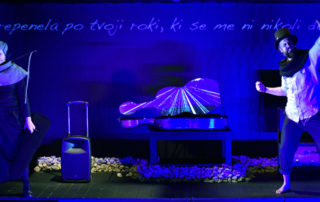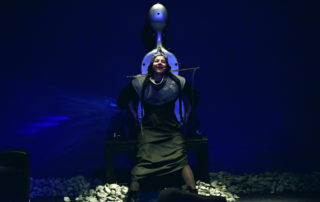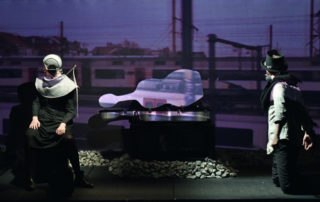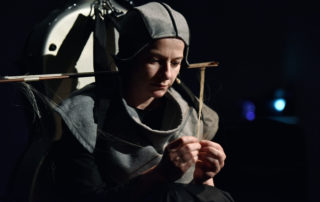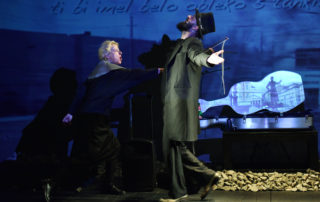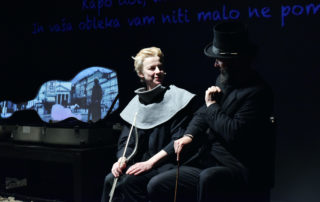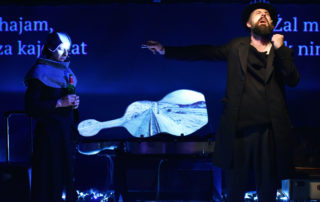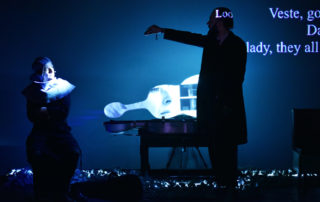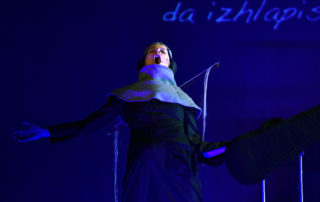Marjan Nećak, Maja Hrgović
THE LITTLE WIRE GIRL
Slovenian National Theatre Drama, Slovenia
Moving Music Theatre, Makedonija
Director: Marjan Nećak
Acting: Barbara Cerar,Uroš Fürst, Branko Šturbej
Dramaturg: Darja Dominkuš
Verse writer: Ana Bunteska
Translator: Iskra Peneva
Composer and set designer: Marjan Nećak
Costume designer: Nataša Filipović
Video designer: Marin Lukanović
Choreography: Žigan Krajnčan
Language consultant: Tatjana Stanić
Running time: 70`
Slovenian National Theatre Drama, Ljubljana, is the central drama theatre in Slovenia, with the largest, most recognizable and respected ensemble, which consists of 45 actresses and actors. Drama’s repertory includes classical, contemporary and experimental theatre productions.
Moving Music Theatre, Bitola, creates contemporary music theater and dance music, modern forms of operas, musical and technical experimental performances. The purpose of MMT is to become a laboratory for research of ideas and development of , through the prism of the musical theater for all kinds of performers, singers, musicians, directors, choreographers and visual artists.
“The Little Wire Girl” (Deklica s strunami) is a contemporary dramatic opera about a violinist travelling by train across Europe. In the course of her journey and stopovers at various railway stations, the story of her life unfolds; starting with a girl who wanted to become a top musician, while her father spent the money intended for her school fees, to an old woman who is still searching for her spot under the European sky, having spent her entire life as a busker. The reference to Andersen’s “Little match girl” is multi-layered. A harsh economic situation, a complicated relationship with the unsuccessful father, the search for one’s place in contemporary Europe, which is increasingly becoming a place of social exclusion confined by barbed wire, walls and general restrictions ̶ the story is a reminder of a position of many gifted individuals who are currently seeking shelter to develop their potentials.
This intimate drama, set on the background of social events in contemporary Europe, takes place in the borderline space between the real world and the dream world, among recognizable, but often unpleasant situations at border crossings and stations, memories and visions linking various times and languages, music and poetry, the bitterness and the beauty of life.
Nečak’s stage direction and set design blur the boundaries of worlds and arts: platforms, a train window, travellers and artists’ luggage, instruments and the musical box of the memories and hopes […] This contemporary dramatic opera, a metaphorical dramatic-musical score, has changed at least one part of the visions of theater, arts and European fears and hopes.
Mira Muhoberac,“Vijenac”



